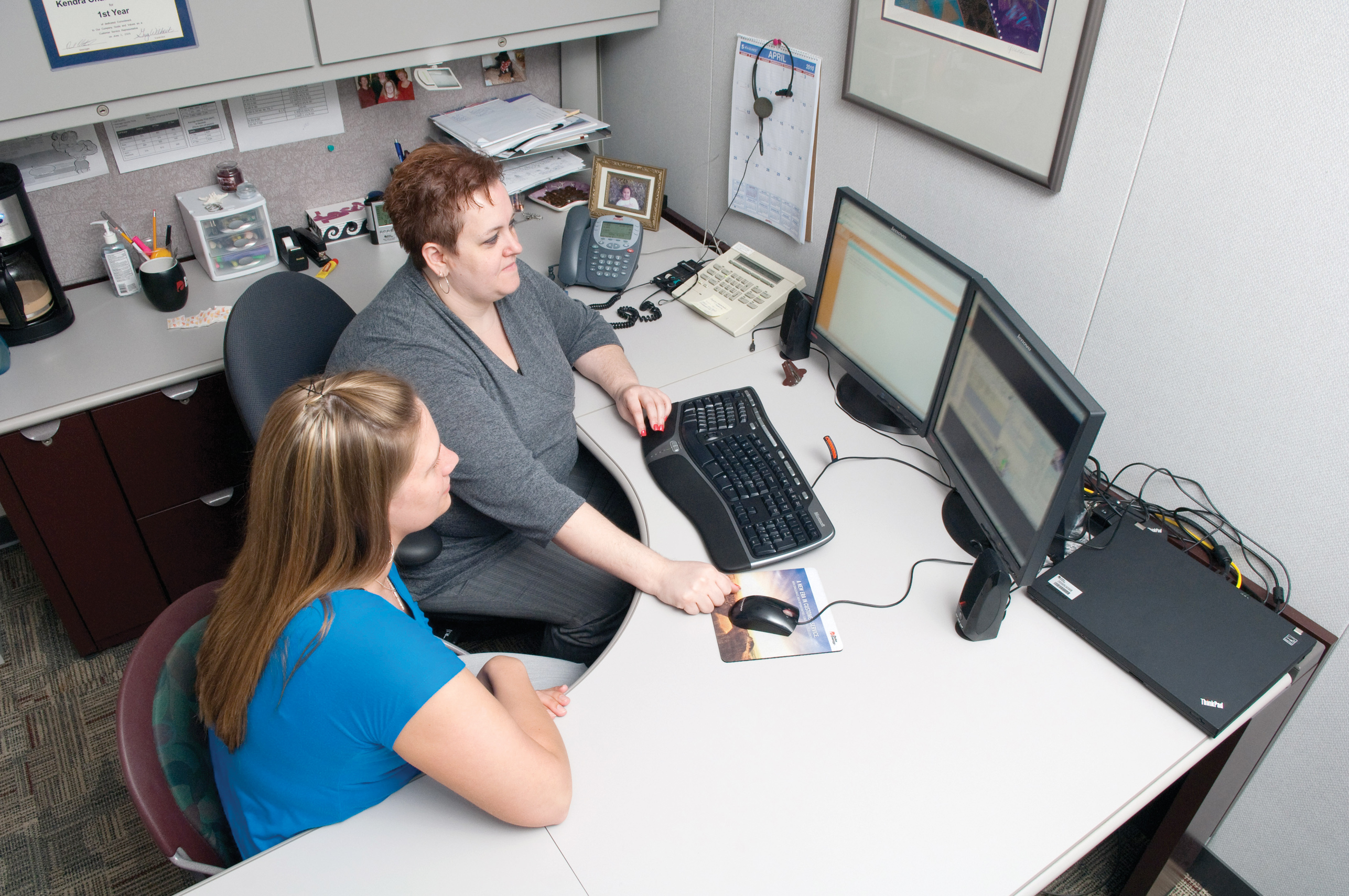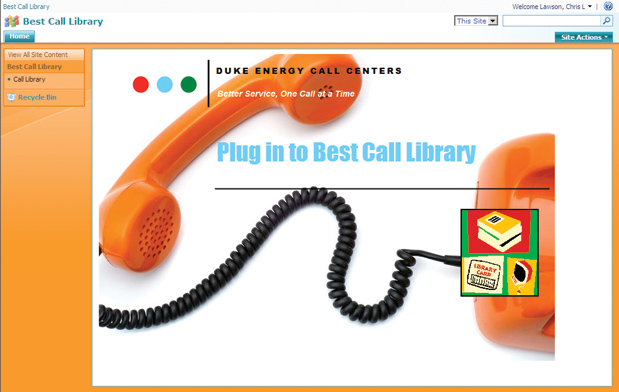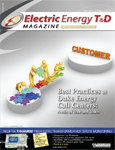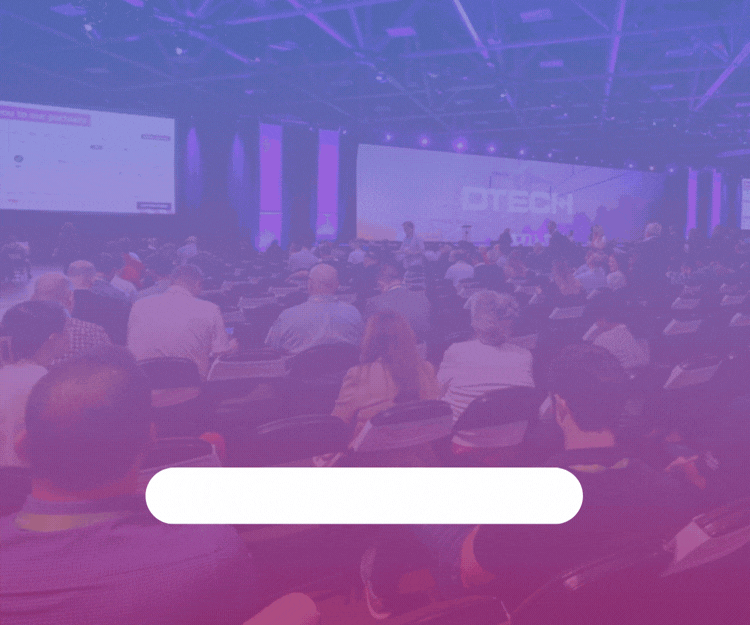Although a call center typically hums with technology, it is the humanity that makes it sing. Best practices in training, response and delivery, are therefore, as much about touch as they are about tech. Call centers must constantly balance efficiency with genuine customer care and concern. That means taking the time to invest in people skills, helping supervisors understand their own personality styles and how they interact with diverse people and personalities, bringing in guest speakers that make “book” lessons come to life, and developing regular feedback procedures for customer service reps to help them continuously improve. Our new hires get one-on-one training with an experienced specialist as well as several weeks of phone lab, where they handle calls in a closely supervised environment. Here’s how we do it at Duke Energy…

Dennis Gowan
Vice President
Call Center Operations
Duke Energy
Charlotte, NC USA
When a customer calls the power company, chances are, there’s a problem. It could be as benign as a request for information or something as potentially serious as downed power lines. In these and other customer call center situations, the person on the other end of the line has to be many things for that customer: Professional, compassionate, knowledgeable, courteous, cool-headed and efficient.
While it may be relatively easy to handle such calls in the normal operating mode when call levels are moderate and the calling customer is calm, it’s a different story in times of crisis. An unexpected weather event, an accident, or any of a long list of emergencies involving power assets, create an intensive environment during which call center phone lines are jammed; customers are angry or frightened; and, answers to their questions (at least the right ones in the customer’s mind) aren’t always immediately available.
That’s when proper training kicks in, and with today’s focus on workforce efficiency, call center training is more important than ever. Employees must be prepared to leverage technology that can lead to new tools, new efficiency, new confidence, and new success in one of the busiest departments in the utility.
Tech Leads the Way
Technology is woven into the fabric of the call center. The phone system for the call center complex automatically plugs customer service reps into a multitude of networks so they can instantly see issues, understand them, communicate them, and help resolve them. Technology gives quick access to outage and estimated times of restoration maps, billing information, tips, and tools. These online tools also allow reps to help customers manage their utility usage and costs.
Calls to power companies’ customer service lines are recorded so that supervisors can routinely check to make sure the representatives handled customer inquiries properly and professionally. In this case, technology helps provide a training opportunity; a learning opportunity. Consider this…
What if you were to take that recording and archiving technology a step further in the training continuum? What if you were to use existing recordings to more broadly communicate best practices? What if you were to have those best-practice calls available on demand as a teaching tool? That’s exactly what we did at Duke Energy, and it’s one of several approaches we’re using to improve the customer experience while at the same time, improving efficiency and professionalism across our team.
Learning from Ben Franklin – Again
Although electricity is the discovery for which Benjamin Franklin is most famous, he invented or conceived a great many other things that continue to impact us today, including the lending library. Duke took Franklin’s concept a little further into the digital age by archiving, cataloging, and sharing the recordings of customer service reps’ best work.
The Best Call Library extends the practical use of recordings already made, giving them new life beyond the typical approach of using them only for one-on-one feedback for the representative who actually handled the call. The library lets supervisors select a region, call category, and a specific type of call within that category to share with reps as an illustration of best practices in that situation.
“It’s a wonderful tool for our new people,” says Associate Training Specialist Tammy Haywood. “In the past, so much depended on what was happening in real time as a new employee sat beside an experienced rep to listen and learn. Now, if we want to focus on how to handle an outage call, for example, we can pull from a menu of outage calls that were handled well and say, ‘See, this is how it’s done’.”
Her colleague, Yolanda Lytle, agreed: “It’s great for people to hear real-life situations and the flow of a good call,” Lytle said. “Plus, reinforcing the positive through the Best Call Library communicates the level of quality we expect.”
In addition to audio recordings, the library calls also include video that shows the steps the representative took in accessing information during the call. The audio and video can be paused at any time for teaching moments.
As Nancy Miller, Duke’s manager of call center engagement, said: “Hearing how you should handle a customer issue is one thing, but actually seeing it unfold – with all of the challenges that come along with it – and knowing that a person sitting perhaps just a few feet away from you did such an outstanding job…well, that is golden.”
Build It and They Will Come
The Best Call Library was launched at Duke Energy in 2010. This Web portal was developed using available off-the-shelf tools. Chris Lawson, Duke’s emerging technologies manager for call centers, got the idea after hearing a colleague mention a similar system used in an unrelated industry. He thought the library approach would be perfect for our business and set about developing a system to provide easy access and clear navigation.
From there, it’s been a team effort. Even customers have gotten into the action, as their thank-you calls – and isn’t it nice that we get them – often are our first indication that specific calls deserve consideration in the Best Call Library. We also ask call center leads and supervisors to help identify Best Call candidates.
So far, the available categories are billing and payment, business and industry, credit, customer care, energy protection, gas trouble, high bill issues, lighting issues, new service, outage, product promotion, tree trimming and Web support. New calls populate the library each week, and we expect that to continue.
Kendra Charles-Turientine, one of our call center supervisors, recently used the library with a new training class.

Kendra Charles-Turientine explores the Best Call Library with team lead Laura Reynolds.
“I thoroughly enjoyed it and so did the coaches who helped in our training,” she said. “Even experienced customer service representatives will benefit from this tool. Being able to see how someone else resolved a situation – even if you’ve done it yourself – is of great value. People can learn new ways of doing things and realize new efficiencies in the process. I’m really excited about this, and so is my team.”
Adding Value Every Day
In just a few months, the Best Call Library has become a trusted resource for trainees and supervisors alike. It also continues to evolve. In addition to providing a fertile training ground for new hires, the library has opened a window to upper management to see the quality of people we hire and the service they provide.

Duke Energy’s Best Call Library helps customer service representatives plug
into best practices. The library features audio and video so that representatives
can watch, listen, and learn. The tapes can be paused at any point to highlight
something – whether that is the warmth in the rep’s voice, the information
on the screen, or the steps saved in resolving the issue.
The library also functions as a tool across multiple areas, including:
- Employee recognition and retention; making it into the library is a badge of honor that is communicated to the team
- Seasonal or issues-based training
- Specialty training
- Call calibration
- Team meetings and analysis
- Trends-based training or reinforcement
Eventually, we may use the library for group training on best practices, or even to help communicate more broadly the good work we’re doing in our call centers every day.
To most of our customers, the people in our call centers are Duke Energy. They handle 10 million live calls each year, serving as the voice, face, and heart of our company. We owe it to our customers and to our employees to provide the best possible tools for the call center job, and our new library is a great new addition.
Technology Supports Training at Every Turn
In addition to the Best Call Library that Duke Energy uses, the company also provides computer-based self-training and instructor-led training. Reps also have personal portals in which they can access their own recorded calls, see the feedback on their handling of the call, review evaluations and comments, hear the audio and see the video from their customer experiences, and learn from the feedback.
Technology further supports our customer service reps behind the scene, with well-planned and well-executed trouble-shooting systems, detailed communications processes across every conceivable team, and readily available information on multiple issues. Dual 19-inch monitors on reps’ desks function as one giant screen, allowing them to see a lot of information at once without having to take precious seconds minimizing and maximizing data to answer questions. Those seconds add up, and reducing them in turn cuts wait time and frustration for customers, thereby improving the overall experience with us.
Automation also plays a role where possible, but we recognize that the technology is there to serve the people – be they customers or reps – and not the other way around. A friendly voice, a cool head, and an efficient problem-solver are what we value most in our call center, and that’s what our customers value too. All of our training and technology are focused with that in mind. And at the end of the day, that’s what really defines a best practice.
About the Author
Dennis Gowan is vice president of Call Center Operations for Duke Energy. He joined Call Center Operations in November 2009, having previously served as general manager in the Finance Program Office. Gowan has been with Duke Energy for 30 years and has served in various roles and in various departments, including Distribution, Transmission, Finance, Customer Services, and Investor Relations. You can reach Gowan at dennis.gowan@duke-energy.com.
About Duke Energy
Headquartered in Charlotte, North Carolina, Duke Energy is one of the largest electric power holding companies in the United States. Its regulated utility operations serve approximately 4 million customers located in five states in the Southeast and Midwest, representing a population of approximately 11 million people. Its commercial power and international business segments own and operate diverse power generation assets in North America and Latin America, including a growing portfolio of renewable energy assets in the United States. More information about the company is available at: www.duke-energy.com. To learn more and contribute to the discussion about the energy issues of today and the possibilities of tomorrow, see www.sheddingalight.org.







